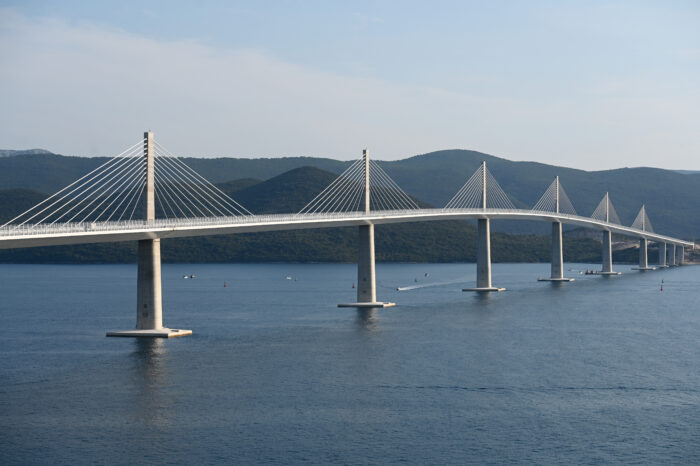The Progressive Post
Elections in Austria: climate crisis and media crisis
In the Austrian elections last Sunday, the conservative ex-chancellor Sebastian Kurz’s ÖVP gained a stunning 37%, and the Greens returned to parliament by more than tripling their vote. Social Democrats however performed weakly. Among the reasons for the modest performance: the SPÖ didn’t succeed in being perceived as ‘the original’ environment party and the headwind of conservative media working against Social Democrats in Austria is considerable.
Austria has voted last Sunday. The winner was ex-chancellor Sebastian Kurz from the centre-right ÖVP, with 37%. Kurz’s former coalition partner, the extreme right-wing FPÖ, lost 10% and plummeted to 16%. Altogether, the coalition of conservatives and nationalists has lost about 4%. Although this is fundamentally positive, many had hoped that the numerous scandals of the two parties would lead to a higher loss of votes. In fact, the liberals were able to attract some voters, as were the Greens, who – due to the ubiquity of the climate issue – returned to the parliament with 14%.
But those who couldn’t benefit from the scandals of the right-wing parties and the prominence of the climate issue were the Social Democrats (SPÖ). They only scored 21% of the vote. The reasons for the modest performance of the SPÖ are complex. We will address two causes here, that are important for the future work of the party.
Climate: Voters rather go to ‘the original’
Already for the election to the European Parliament in May 2019, the SPÖ took the climate issue seriously. The topic received additional momentum in Austria, as the Greens didn’t take the electoral threshold in the 2017 elections and weren’t represented in parliament for the last two years. This was also because in 2017 many Green voters had voted for the Social Democrat candidate. It was foreseeable that many or most of those floating voters would go back to the Greens. They had not wanted the Greens to be excluded from parliament.
The question was, however, whether the SPÖ would be able to tie at least a significant part of these former Green voters to Social Democracy by picking up the climate issue. This did not succeed.
There was no lack of goodwill, nor of workable concepts. The SPÖ has propagated a major green investment program, a sort of Green New Deal, calling for the expansion and reduction of prices of public transport and the increased use of sustainable energy. The environmental programs of the SPÖ and the Greens were very similar. The problem was (and still is) that not the Social Democrats are perceived as the main environmental party, but the Greens. Voters rather go to what they perceive as ‘the original’.
The question here is how Social Democracy can gain credibility in the environmental field, or whether it should better focus on its core issues and leave the climate field to the Greens. The signs of the times are not difficult to interpret here. With Fridays for Future, we are experiencing the greatest mobilisation of young people in many years. Climate change has also reached the working class as one of the greatest concerns for the future. If Social Democracy wants to become the leading force of the future, it must find a strong and clear line in environmental protection and communicate it successfully.
Successful communication against the headwind of conservative media
Another specifically Austrian problem (but not only) is that the SPÖ fails more and more to successfully place its own content in the media. This is mainly because the ÖVP has built a tremendous media power in Austria. Apart from public broadcasting, almost all Austrian daily newspapers and magazines belong to the centre-right/conservative camp. The Austrian print media landscape is either owned by ÖVP-friendly banks and entrepreneurs or kept on a short leash with advertisements from big industry and government.
The ÖVP is working – in its own words – on “Message Control”. In reality, this means that journalists, editors-in-chief and publishers are under enormous daily pressure.
It is not for nothing that the European Centre for Press and Media Freedom called before the election to counteract the “Orbanisation” of the Austrian media and to see free, critical reporting as what it is: the essence of every democracy.
Already at the 2017 election, the newspapers presented Kurz as a Messiah-like figure and led a continuous negative campaign against the SPÖ. And similarly, in the run-up to the 2019 election, the coverage of the centre-right and tabloid media remained one-sided and biased. Each tiny problem of the SPÖ was played up, the Social Democrat lead candidate Pamela Rendi-Wagner was painted as incompetent, the selection of images seemed of purpose to ridicule the party. Reports on the ÖVP candidate Kurz however were always friendly, the photos perfect.
In order to be successful in elections, the Austrian Social Democracy will have to find ways to get in touch with their supporters and the electorate unfiltered. One way may be to build successful own media channels.





